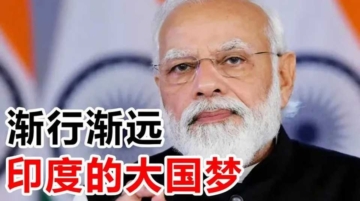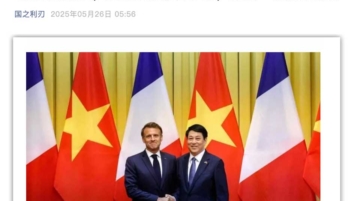India and Pakistan may have declared a ceasefire, but the anger within India has not subsided. It needed an outlet—and a bakery, named after a Pakistani city, became the perfect target. Now, this story is circulating on Chinese social media—not just to report on tensions in India, but to hold up a mirror to China’s own brand of unchecked nationalism.
Titled “India’s ‘U-Lock Gang’ Vandalized a Bakery—And Behind It Lies a More Tragic History,” the article was published by Basic Common Sense (基本常识), a Chinese WeChat account known for its science and social commentary.
The piece recounts how Indian nationalists recently attacked a bakery named Karachi—sharing its name with Pakistan’s largest city—amid simmering India-Pakistan tensions. But what the vandals ignored, or chose not to see, was the bakery’s 72-year history and the deeply personal story behind its name.
The bakery’s founder was a Hindu who originally lived in what became Pakistan after the 1947 Partition. At the time, he ran a bakery there and was raising four children. Life as a religious minority in the newly created Pakistan quickly became fraught with discrimination and hardship. Eventually, he made the agonizing decision to abandon his home, livelihood, and property. He fled with his family to India—the “spiritual homeland” of Hindus—seeking safety, dignity, and a chance to start over. In memory of his origins, he named his new bakery Karachi, preserving a piece of the past even as he tried to build a new future.
Decades later, in a cruel twist of irony, that very name—meant to preserve memory and identity—was used against him. A mob accused the bakery of being “pro-Pakistan” and vandalized the shop. Police largely turned a blind eye, echoing similar scenes in China where nationalist mobs attacked “Japan-related” businesses, often ignoring the facts.
The article’s title references the “U-Lock Gang”—a term that immediately recalls a violent chapter in Chinese nationalist history. During the 2012 anti-Japan protests, sparked by the Diaoyu Islands dispute, a man in Xi’an attacked a fellow Chinese citizen who drove a Toyota. Using a U-shaped bicycle lock, he smashed the driver’s skull, leaving him permanently disabled—partially paralyzed and unable to speak.
That U-lock incident was one of the most brutal, but not the only example of Chinese nationalists turning against their own. Businesses like Miniso and Nayuki have been targeted for supposedly mimicking Japanese aesthetics, even though these brands were founded by Chinese entrepreneurs. In 2010, during the Chongyang Festival in Chengdu, a woman wearing Hanfu (traditional Han Chinese dress) was mistaken for wearing a Japanese kimono by anti-Japan activists. They forced her to remove the clothing and burned it on the street.
The article underscores the tragic absurdity of this logic—attacking one’s own people in the name of patriotism.
As it puts it in a cutting final line: “U-lockers across the world are the same: they don’t care about the truth. They just want to violently express ‘patriotism’ without risking themselves. To them, it doesn’t matter whether they’re hurting enemies or their own people.”






